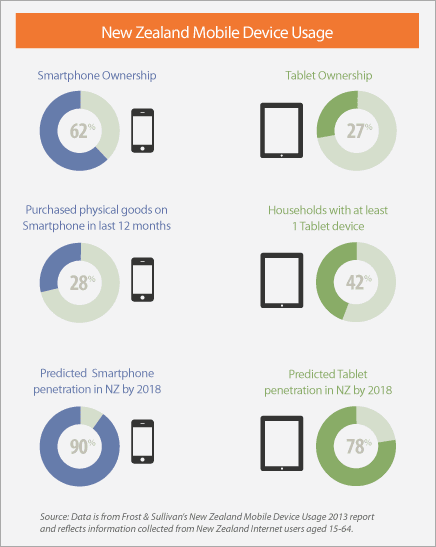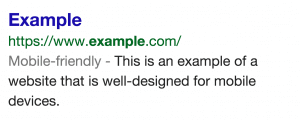I recently reached my 10 year anniversary in the Digital Marketing space and it got me thinking about the online industry – the changes I’ve seen, the things I’ve learned and what lies ahead.
Throughout the past 10 years I’ve worked both client-side and agency-side, participated in hundreds of online projects across a host of industries, and helped a wide variety of organisations implement business-changing online strategies. Along the way, I’ve also had plenty of encounters with the murkier side of online marketing. I’ve heard countless myths and misconceptions and observed some common themes – a number of which I think it’s high time were addressed head on.
With this in mind I’ve created this series of posts to help NZ business owners be better informed about truths and fallacies of online marketing. My goals are simple – to educate, enlighten and help business owners develop a better understanding of the online space. If you’re going to invest in promoting your business online (and I think you should!), then there are some things you need to know in order to make smart decisions for your business.
Alright, let’s get started!
Hard truth #1
Misinformation & poor advice is everywhere
It feels odd kicking off this series of informational blog posts by suggesting that misinformation is everywhere. It’s unfortunate, but it’s the reality and it’s a huge shame for our industry and the businesses it serves. My concern is that there are simply too many NZ businesses getting taken for a ride by so called ‘SEO/Online Marketing/AdWords professionals’ who are highly inexperienced, ignorant and/or untrained in any form of marketing. Getting the wrong help or advice can hurt and it can also end up being a big waste of money.
Before going any further I want to make it clear that this is not about criticising competitors (I’d much prefer to talk about the reasons why our clients like to work with us and how we help their websites perform better). I also want to point out that there are some highly reputable online marketing agencies in NZ who do fantastic work for their clients.
Moving right along… In my role as Online Marketing Manager at Apex, I get the opportunity to review tons of websites and speak with a lot of clients. I have come across far too many websites that have supposedly had “SEO work” carried out on them prior to coming to us and, far too often, I’ve heard horror stories from clients who have come to us following a less than ideal experience elsewhere.
After years of seeing and hearing about poor quality work first hand, I’ve come to the conclusion that many of the better online marketing agencies (i.e. those with well trained staff, a sustainable long-term view and marketing-led approach) are not always the ones you’ll find at the top Google’s search results, nor are they the dearest (or the cheapest), or the ones tied to some of NZ’s better known brands. Choosing the right provider is hard, but it’s vital. The wrong help can hurt.
How do you choose the right service provider?
Choosing the right agency is easier said than done, particularly when the typical NZ business owner is entering a dynamic field in which they most likely have limited experience or knowledge. My strong advice is to start off any discussions by asking lots of questions. At a minimum be sure to ask questions like:
- How exactly will you improve my website’s visibility in search engine results? Look for specifics and if you don’t understand their response, ask them to educate you.
- How will you measure the success of my campaign?
- Can I speak with some of your clients about their experience working with you and the results you’ve achieved? Reputable providers won’t hesitate to put you in contact with past or present clients.
- What changes will you need to make to my site? Good agencies will most likely recommend making changes to content, user flows, and conversion funnels in addition to recommendations about design and technical elements of the site. Make sure you have some idea of what those changes might be.
I also advise being very sceptical of any provider offering ranking guarantees – it’s simply not possible. And never, ever let yourself be fooled by unsolicited emails promising to improve your rankings, generate more leads, boost your online sales… or make you look 20 years younger!

For more helpful information about choosing the right SEO company, check out these basic guidelines from Google.
Hard truth #2
Mobile matters – you need to do something about it right now
If you’re tempted to skip over this one, think again. I’ve heard too many clients claim that they don’t need a mobile-friendly website just yet because their target audience doesn’t look for their product or service on a mobile device.
Prevalence of mobile devices
In the UK, recent data shows that visits to retail websites via mobile devices have overtaken desktop traffic for the first time. What’s more, over half of the traffic to retail websites is now coming via smartphones and tablets and mobile commerce now accounts for 36% of UK e-retail sales, rising to 40% for clothing and apparel websites.*
* IMRG Capgemini Quarterly Benchmarking (Q2 2014)
Closer to home in NZ almost 2/3 of New Zealanders aged 15 – 65 own a smartphone and just over 1/4 own a tablet. Plus with tablets typically being a less personal device, 42% of all NZ households have at least one tablet which is used by multiple people. At the current rate, smartphone ownership levels are expected to grow to reach 90% penetration by 2018.

Mobile is a game changer for all businesses. The rapid uptake of mobile technology and the prominence of the online channel means that the customer is now firmly in the driver’s seat when it comes to finding and purchasing the product or service of their choice. Regardless of whether they are at home, in your store or on the go, your customers are using their mobiles or tablet devices to research and consume huge amounts of information related to your products or services, including pricing, specifications, reviews, deals. They’re also exploring your competitor’s offerings – and if your competitor has a mobile-friendly website, I can guarantee they won’t spend much time on yours. While the retail, entertainment, and travel/tourism sectors are feeling it more than most, no sector is immune.
It doesn’t stop at smartphone and tablets
Aside from smartphones and tablets, if we look a little further ahead NZ businesses will soon need to start thinking about the impact of smart watches and in-car internet dashboards. The trend has already begun in Europe and the US and there’s no doubt that wearable devices and the in-car internet experience weave their way into NZers lives too.
If you think it’s far-fetched, consider how quickly smartphones have become an indispensable part of our day to day lives. 10 years ago, we could not have guessed how important mobile would become to business and there’s no reason to think that smart watches and in-car internet dashboards won’t have a similar impact. If you’re not catering to mobile users yet, now is the time to catch up before you fall even further behind.

Impact on Google visibility
After months of testing, Google has officially unvelied their use of a ‘mobile-friendly’ label in their mobile search results while at the same time announcing that they’re experimenting with using the ‘Mobile-friendly’ label as a ranking signal.

From Google: “We see these labels as a first step in helping mobile users to have a better mobile web experience. We are also experimenting with using the mobile-friendly criteria as a ranking signal.”
Recent developments like these show just how intent Google is on pushing webmasters and business owners to pay more attention to the mobile experience they deliver.
What can you can do about it?
- Stop viewing mobile as a secondary channel and start taking mobile users seriously. If you’re not thinking mobile, your competitors probably are
- Stop short of saying ‘my target audience doesn’t access my website via mobile’. I hear that one far more often than I should….
- Talk to your web designer about the options that exist for providing mobile visitors with a mobile-optimised experience. Whether it be a website that uses responsive web design techniques, a dedicated mobile website, or a mobile app that helps your customer in some way and makes it faster and more convenient for them to do business with you, it’s time to cater to all users regardless of their device.
Hard truth #3
SEO is getting harder (and it’s not magic)
Over the past five years, it has become increasingly difficult to perform effective search engine optimisation (SEO). It’s a trend I can only see continuing and it’s not necessarily a bad thing. It’s forcing SEOs to think much more about real marketing, not manipulaitng rankings. It’s also separating the wheat from the chaff when it comes to SEO service providers.
SEO is no longer the ‘dark art’ it once was and many of the ‘tips and tricks’ (I’ve even recently seen the word ‘wizardry’ used… hmmm) that worked five years won’t work today. I’m talking about spammy and outdated techniques like keyword stuffed copy, submitting non-newsworthy press releases in the hope of acquiring links, buying links for the purposes of manipulating rankings, publishing low quality articles on spam blogs, and buying keyword rich domains in the hope they’ll make your site rank. At best, use of those tactics today will deliver little or no improvement; at worst some of them could result in your site being penalised.
It’s time for business owners to change the way they think about SEO and move away from the mind-set of ‘getting rankings in Google’. It’s so much broader than that now and requires a more strategic approach.
When working with clients, our goal should be to educate them and encourage them to think more along the lines of optimising their overall web presence. From web design, usability and content creation/promotion, to use of social media, the importance of online reviews, and leveraging online relationships with complementary organisations in your sector, it’s essential to understand that SEO no longer exists in a silo. It’s just another channel of marketing (and it’s not magic).
What can you do about it?
- Be willing to learn and change what you may have previously thought about SEO. A good SEO provider will take time to explain, educate and help you grow as a marketer. Take on board everything you can.
- Start treating SEO as you would any other marketing channel – after all that’s all it is. Just like radio or print or outdoor or editorial, it’s not magic (but it is infinitely more measurable).
- A successful marketing strategy requires a blend of channels. Make sure your business could survive without Google – placing your business’ success or failure at the hands of a search engine is risky.
- Make the most of your other marketing efforts by leveraging any SEO opportunities that may stem from them (think sponsorships, PR, industry partnerships, events, your involvement with charities and sports clubs etc).
So, that brings me to the end of part one – I hope you’ve found it useful, or at least got you thinking about your experiences with promoting your business online.
I’d love to hear thoughts from business owners or other digital agencies in NZ. Do you agree with these hard truths or am I off base? Drop me a line in the comments area below and let me know your thoughts.
If you learnt something from reading this then be sure to check back next month when I’ll talk about the importance of having a good business model if you’re going to compete online, print advertising vs online advertising, and uncover why so many businesses end up wasting money every day with poor quality AdWords campaigns.
